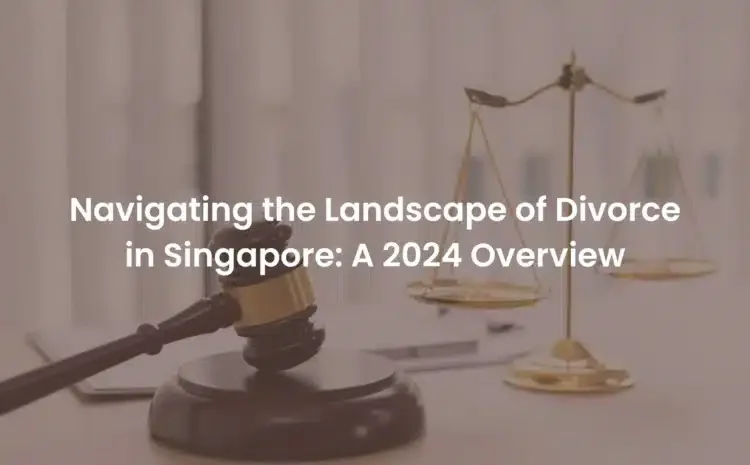Navigating the Landscape of Divorce in Singapore: A 2024 Overview
Introduction: In 2024, the dynamics of divorce in Singapore have evolved, reflecting the changing societal norms and legal landscape. As the city-state continues to progress, the process of divorce has become more nuanced, with an emphasis on amicable resolutions, support for families, and a streamlined legal framework.
Evolving Legal Framework: The legal system in Singapore has undergone changes to better address the complexities of divorce. Amendments to the Women’s Charter and other related legislation aim to facilitate smoother proceedings and ensure fair outcomes for all parties involved. Mediation and alternative dispute resolution methods are encouraged to foster communication and understanding between spouses.
Rise of Mediation and Collaborative Divorce: In 2024, there is a notable shift towards mediation and collaborative divorce methods. Couples are increasingly choosing these alternative approaches to traditional litigation, recognizing the benefits of a more cooperative and less adversarial process. Mediation not only expedites the resolution but also helps in preserving relationships, especially crucial when children are involved.
Focus on Child-Centric Solutions: The well-being of children remains a central concern in divorce proceedings. Singaporean courts prioritize child-centric solutions, emphasizing the importance of both parents’ involvement in their children’s lives. Shared parenting arrangements, where feasible, are encouraged to ensure that children maintain meaningful relationships with both parents.
Financial Fairness and Asset Division: Singapore places a significant emphasis on equitable asset division to ensure financial fairness for both spouses. The court considers various factors, including contributions to the marriage, financial needs, and the welfare of any children. This approach aims to prevent any party from facing undue financial hardship post-divorce.
Technological Advances in Divorce Proceedings: The use of technology has streamlined divorce processes, making them more efficient and accessible. Online platforms for filing documents, virtual court hearings, and digital communication have become commonplace. This not only accelerates the legal proceedings but also accommodates the needs of a modern, fast-paced society.
Emphasis on Post-Divorce Support: Singapore recognizes the importance of supporting individuals post-divorce, especially in terms of emotional well-being and financial stability. Counseling services, support groups, and financial planning resources are readily available to help individuals navigate the challenges that may arise after the dissolution of a marriage.
Cultural Sensitivity and Diversity: Singapore’s diverse population is reflected in its approach to divorce. The legal system acknowledges and respects cultural and religious differences, allowing individuals to follow specific practices within the bounds of the law. This inclusivity contributes to a more tolerant and understanding society.
Conclusion: As Singapore continues to adapt to the changing dynamics of relationships and family structures, the approach to divorce in 2024 emphasizes compassion, efficiency, and fairness. The legal system and societal attitudes have evolved to foster amicable resolutions, putting the well-being of children and the overall family unit at the forefront of divorce proceedings. The emphasis on mediation, technological advancements, and post-divorce support signifies a commitment to providing a holistic and supportive environment for those undergoing the challenging process of divorce.

